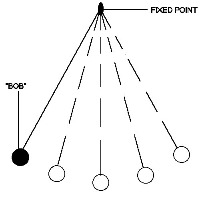

If the bowl is turned upside down, the marble can be balanced on the top, at the equilibrium point where the net force is zero.

If the bowl is right-side up, the marble, if disturbed slightly, will oscillate around the stable equilibrium point.

For an unstable equilibrium point, if the object is disturbed slightly, it does not return to the equilibrium point.Ĭonsider the marble in the bowl example. The stable equilibrium point occurs because the force on either side is directed toward it. If an equilibrium point is stable, a slight disturbance of an object that is initially at the stable equilibrium point will cause the object to oscillate around that point. (See Potential Energy and Conservation of Energy.)

In a simple harmonic oscillator, the energy oscillates between kinetic energy of the mass K=\fracA are called the turning points. In this case, the block oscillates in one dimension with the force of the spring acting parallel to the motion: This potential energy is the energy stored in the spring when the spring is extended or compressed. The force of the spring is a conservative force (which you studied in the chapter on potential energy and conservation of energy), and we can define a potential energy for it. If the only result is deformation, and no work goes into thermal, sound, or kinetic energy, then all the work is initially stored in the deformed object as some form of potential energy.Ĭonsider the example of a block attached to a spring on a frictionless table, oscillating in SHM. That is, whether you pluck a guitar string or compress a car’s shock absorber, a force must be exerted through a distance. To produce a deformation in an object, we must do work.


 0 kommentar(er)
0 kommentar(er)
